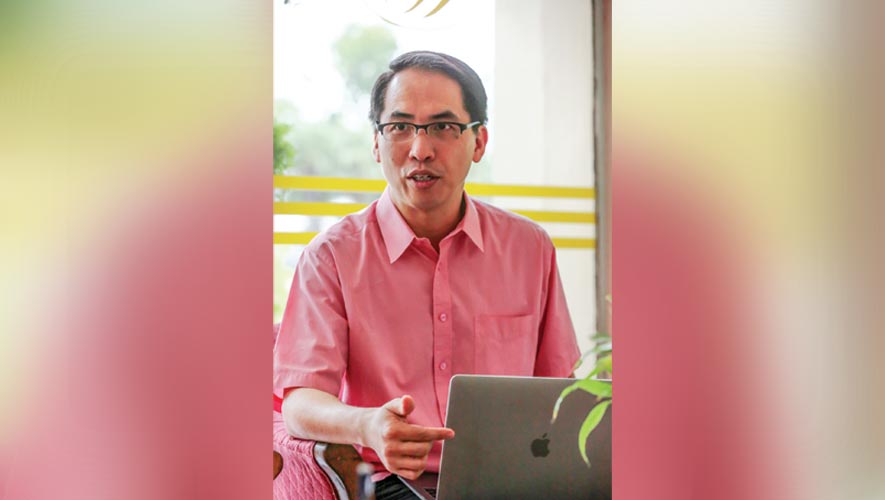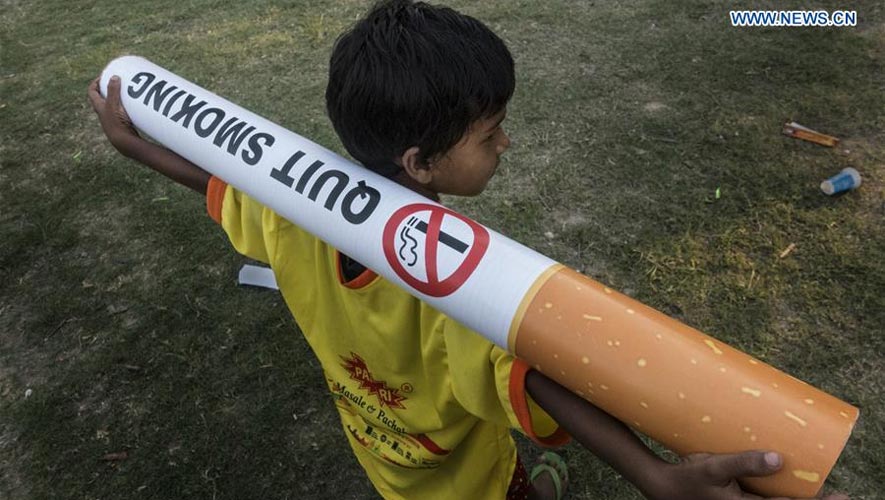A fresh study on Cambodia’s tobacco control has reignited the debate
For the latest Cambodian Business news, visit Khmer Times Business
Today 2.4 million Cambodians will use tobacco. That’s roughly 22 percent of the population over the age of 15 according to the 2014 National Adult Tobacco Survey. Worse still, it’s killing 15,000 of them annually and costing the Kingdom $662 million each year, the equivalent of three percent of the country’s gross domestic product.
These are the grim findings of a recent study conducted by the United Nations Development Programme (UNDP), the World Health Organisation (WHO) and the Framework Convention on Tobacco Control (FCTC). The study, published earlier this month, aimed to highlight the economic benefits of tighter controls on one of the world’s most addictive substances and – simultaneously – the costs the Kingdom would bear if it failed to act now.
Naturally enough, one of the measures through which the “Investment Case for Tobacco Control in Cambodia” suggested improvement is focused on taxation. Speaking with Capital Cambodia, Dudley Tarlton of the UNDP and a technical advisor involved in the study details the need for change.

“We know from experience that customers will feel the increases enough that there will be people either not starting to use tobacco or quitting,” he explains via telephone. Cambodia is tied with Sierra Leone for the fourth most affordable country in the world to buy tobacco, with only Rwanda, Guinea and Paraguay being cheaper.
Rodrigo Santos Feijo, technical officer, development assistance with the WHO FCTC Secretariat explains that the limited taxation is the key driver behind all of these harrowing statistics. “We see countries moving towards the above 75 percent [of taxation] category, but Cambodia is still on 25.2 percent on its most sold brand of cigarettes. This brand costs $0.60 and then only 25 percent of that is for taxation, the remaining 75 percent is the profits of the tobacco company.”
The UNDP-WHO-FCTC joint study called upon the Cambodian government to strengthen existing tobacco control measures in five key areas – increased taxation, enforcing restrictions on smoking in public places, banning tobacco advertising, implementing plain packaging and investing in educational media campaigns.
Feijo was keen to point out that the study simply presented recommendations, stating that Cambodia had made good progress, but that it was up the government to fill the gaps in policy and implementation.
Detailing the government’s reaction to the study, Dr Chhea Chhodaphea of the National Centre for Health Promotion (NCHP) states that the “Health Ministry has a plan regarding the implementation of laws to reduce the use of tobacco in response to the recommendations of UNDP/WHO and FCTC which were raised in the study.”
For all the recommendations made, increased taxation claims to offer the greatest return on investment. The prospect of higher tobacco taxes often prompts fears that the illicit market will surge as those unable to afford legally traded cigarettes turn to black market.
Among critics of taxation as a means of control, General Manager of Japan Tobacco International (JTI) Cambodia, Simon Maude-Roxby claims “excessive taxes are not an effective means of combating the illicit cigarette market. The correlations between jumps in tobacco taxes and the development of illegal trade are well known much to the detriment of governments.”
However, tobacco control advocates maintain that there is no credible link between higher rates of taxation and the growth of the illicit trade. Dr Ulysses Dorotheo, executive director of the Southeast Asia Tobacco Control Alliance (SEATCA) says it is a very common argument that the tobacco industry raises against raising taxes. “But we haven’t seen that happen. The best example in the region is the Philippines, where we had a huge tax increase in 2013 that raised prices by around 350 percent on average.”
Dr Dorotheo adds that although the Philippines witnessed a brief spike in illicit cigarette trading, this was linked to a local manufacturer underreporting their production levels to avoid the new taxes. “They were caught and eventually bought out by JTI as their debt to the government was insurmountable,” he says.
The notion that higher taxes would spur the illicit trade to new heights was dismissed by UNDP’s Dudley, who notes that tobacco is far cheaper in Cambodia than neighbouring countries, rendering the profit margins too low for smuggling, which makes the act worthless.
Despite this, just this week the Khmer Times reported that anti-economic crime police had uncovered 129 boxes filled with packs of cigarettes without the legally required health warnings on the packaging. The Phnom Penh-based cigarette storage facility is suspected of importing, storing and distributing cigarettes illegally. It is not yet known whether the cigarettes were manufactured legally.
However, as Feijo points out, the government should control illicit trade by controlling borders, tracking trade and improving inspections that control the markets. He notes that increased taxation simply generates more revenue for the government to be able to counter the illicit trade.
Representing JTI, Maude-Roxby feels that governments ought to tread carefully when considering changes to tobacco taxes. “Governments risk losing tax revenues as legal products become unaffordable, leading consumers to shift to cheaper, often illegal products marketed by criminals,” he stresses.
Still, the evidence for such a claim is limited at best. As noted by Feijo, Tarlton and Dr Dorotheo, illicit trade is just that – illicit. As such, there exists very little in the way of credible data on the matter.
The numbers are there, but they remain one of the few sources claiming to have accurate data on the impact of the illicit trade in Asia and the Pacific. Out of the 9.4 billion cigarettes smoked in Cambodia through the year 2017, 600 million were illicit, estimates Oxford Economics Ltd, a global forecasting and quantitative analyst. Its data suggests that Cambodia lost $3.3 million in excise tax revenue to the illicit trade in 2017.
However, Tarlton says these figures should not be trusted, citing Oxford Economics’ longstanding relationship with tobacco companies. “Much of their work is funded by the tobacco industry, so they’re no-go academic unit for us.”

In fact, Oxford Economics is simply another weapon in the arsenal of tobacco companies, Feijo alleges. He claims that tobacco companies use groups like Oxford Economics to produce biased research that is later presented to governments as reliable data.
Dr Dorotheo of SEATCA echoes and expands upon this sentiment, “The tobacco industry will misbehave, to put it kindly, whenever they can, circumventing the law, if not just outright violating the law.” He goes on to suggest that more often than not tobacco manufacturers are themselves heavily involved in the illicit trade, not just in Cambodia, but worldwide.
As for the Kingdom, the NCHP reinforces the notion that higher taxation has no bearings on the illicit trade, “The criticism that higher taxation will increase tobacco smuggling is not right, however, the increase of the tax will increase national revenues and reduce the use of tobacco.”
The use of said increase in revenues could and should be put to further enhance tobacco control, including tackling the illicit trade, as both Feijo and Dr Dorotheo agree. This is already happening in Thailand, the Philippines and Vietnam, where a percentage of revenue generated from tobacco taxes is earmarked for treating tobacco related illnesses, enhancing the enforcement of tobacco control and providing cessation services for smokers wishing to quit.
While the recommendations presented in the investment case study highlight potential savings of $1.9 billion for the Cambodian government over the next 15 years, it remains to be seen whether the recommendations will be heeded.
In Feijo’s words, tobacco control is not simply a public health issue, but one critical to the economic development of Cambodia and that while the Kingdom has made great progress, a very powerful industry is trying to undermine that.




